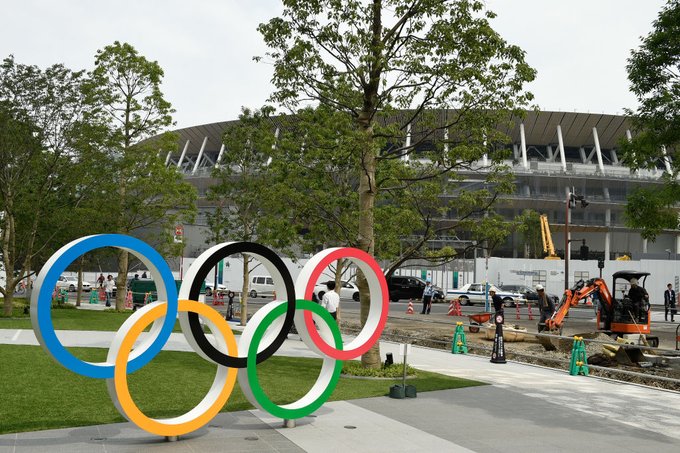Going for the Gold: Coronavirus shows the link between politics and sports

Every several years, the International Olympic Committee gathers to determine where the next Olympic Games should be held. Because preparation for the Olympics takes years, the IOC chose 2020’s Tokyo all the way back in 2011.
Tokyo was chosen for many reasons. The city has been a hub for international trade, culture and technology for decades, and it also boasts a metropolitan population of 36 million people, which gives the Games maximum exposure.
However, there are growing fears that the 2020 Olympics in Japan might not even happen at all. In light of the dire condition brought upon many countries by the coronavirus, the Olympics is now in jeopardy. More than 1,000 people in Japan have been infected with the virus, 12 have died and several schools have been shut down.
The prospect alone of a cancelled Olympics shows just how inextricably linked sports are with politics. Months ago, the coronavirus was a story best suited for the front page of The New York Times or the Wall Street Journal. It was a story that highlighted communist suppression and the global threat of pandemics.
Now, it’s on our sports pages.
The spread of the virus also highlights the potential reach of political decisions in a globalized world. According to The New York Times, when officials in China first learned of the coronavirus, their reaction was to suppress the discovery rather than report it. At the time, this was a political calculation, a consideration made with the interests of the Communist party in mind. Now, that political calculation has not only led to a miserable situation for the Party but a potential catastrophe for the wider world of sports.
Other prominent examples exist to further highlight the connection between sports and politics. After 9/11, MLB postponed several of its games, pushing the World Series well into November. The NFL did the same, cancelling the weekend’s games after the attack.
In the same vein, the Olympics, arguably the biggest international sporting event in the world, is under threat. Talk of a potential cancellation is in full swing, and representatives of the IOC have already publicly discussed the potential of delaying the Games or moving them to a different city, which is virtually unfeasible.
If I was in charge of determining where to move the Olympics, I would say move the Games to a location that has already hosted it in recent years such as Rio de Janeiro or London. Most likely, many of the Olympic venues are now being used recreationally and can be quickly turned around to accommodate the Olympics again.
This is a better option than postponing the Olympics because of the challenges with timing that would arise otherwise. If postponed, many of the athletes and participants would have to wait longer, causing their entire training schedules to be thrown off and, for older athletes, possibly impacting their chances of participating in the Games at all. In addition, the Olympics has a tradition of hosting the Winter Games two years after the Summer Games, so a postponement would throw off the IOC’s time tables.
The IOC would be doing athletes and sports fans all over the world a disservice by canceling the Olympics. Though the risk is real and must be approached with the utmost care, the Olympics is a historic tradition that should not be canceled altogether even if there is a fear of a health epidemic. The IOC definitely does not want to cancel the Olympics, and an overwhelming majority of people don’t want that either.
There are many different ways to approach the situation, and there’s not one easy answer. But whatever the IOC decides to do, it must not simply call off the 2020 Games.
Nathan Hyun is a sophomore writing about the 2020 Olympics. His column, “Going for Gold,” runs every other Wednesday.

